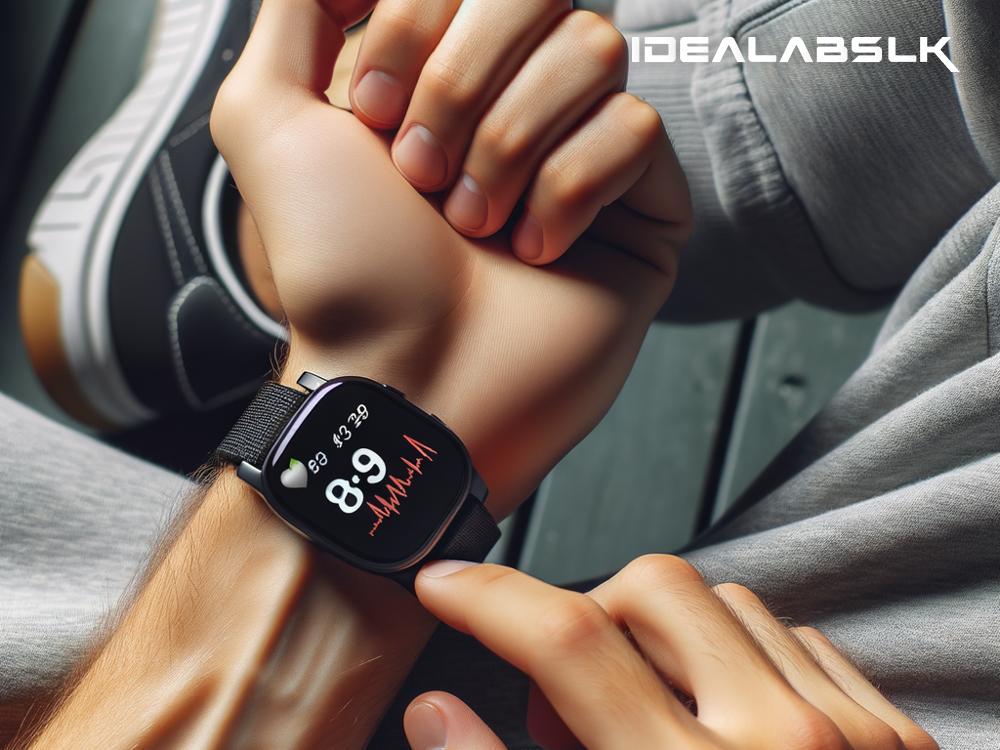Unveiling the Marvels of AI in Compact Wearables for Stress Detection
In today's fast-paced world, stress has become a constant sidekick for many of us. From tight schedules to the overwhelming flood of information, stress can sneak up on us, often going unnoticed until it starts taking a toll on our health. However, thanks to the wonders of modern technology, particularly in the realm of Artificial Intelligence (AI), we have an innovative ally in the battle against stress. This ally comes in the form of compact wearable devices. Let's embark on a journey to understand how AI works in these handy gadgets to help us detect stress, bringing a fascinating blend of technology and wellness into the palm of our hands.
The Heart of the Matter: What is AI?
Before we delve into how AI works in wearables for stress detection, let's demystify AI. Artificial Intelligence, in its essence, is a branch of computer science focused on building smart machines that can perform tasks that typically require human intelligence. These tasks range from recognizing speech, making decisions, translating languages, and more. AI operates through algorithms and machine learning, where machines are trained to improve their responses based on the data they process.
The Transformation of Wearables with AI
Wearable technology has undergone a significant transformation, from fitness trackers that count your steps to smartwatches that let you make calls, send messages, and track your health metrics. The integration of AI into these wearables has unlocked a new frontier - the ability to detect and manage stress.
How AI Powers Stress Detection in Wearables
-
Monitoring Vital Signs: AI-equipped wearables keep a vigilant eye on your body's vital signs, such as heart rate, skin temperature, and even sweat levels. These physiological signals can present a puzzle that indicates your body's stress levels. AI acts like a skilled detective, piecing together these clues to assess whether your body is under stress.
-
Learning Your Patterns: Every person's body reacts to stress differently. One of the marvels of AI is its ability to learn and adapt to individual patterns through machine learning. Over time, AI learns how your unique body signals correlate with stress levels, making its detection more personalized and accurate.
-
Prompting Immediate Actions: Once AI detects signs of stress, it doesn't just sit there. It prompts the wearable to notify you, sometimes offering immediate suggestions like guided breathing exercises, mindfulness prompts, or suggesting a quick walk. This immediate response can be incredibly effective in managing stress before it escalates.
-
Data Analysis for Long-Term Health: Beyond immediate responses, AI in wearables also collects data over time, offering insights into your stress patterns. This can be eye-opening, revealing triggers and patterns you might not be aware of, allowing for long-term strategies in managing stress.
The Magic Behind the Scenes: Algorithm-Powered Detection
The AI in these compact wearables operates through sophisticated algorithms that analyze the collected data in real-time. These algorithms are designed to identify specific patterns that align with stress responses. Once a pattern is detected that indicates stress, the algorithm kicks into action, signaling the device to alert the user.
The Potential and Promise
The potential of AI in wearable technology for stress detection is vast. It not only provides a tool for immediate stress management but also paves the way for a future where individuals have more control and understanding of their mental health. The data collected can also be valuable for healthcare providers, offering deeper insights into a person's stress levels and triggers.
Embracing the Future
As we continue to navigate a world where stress is a common challenge, the fusion of AI and wearable technology offers a beacon of hope. These compact devices, powered by the intelligent algorithms of AI, are not just gadgets but partners in our journey towards better mental wellness. With ongoing advancements in AI and wearable technology, the future looks promising, where managing stress could become as straightforward as glancing at our wrist.
In conclusion, the integration of AI in wearables for stress detection is a testament to how technology can enhance our quality of life. By offering a sophisticated, yet remarkably user-friendly way to monitor and manage stress, we're stepping into an era where wellness is literally within arm's reach. As we continue to embrace these advancements, it's clear that the future of health and wellness is bright, intertwined with the intelligent capabilities of artificial intelligence.

